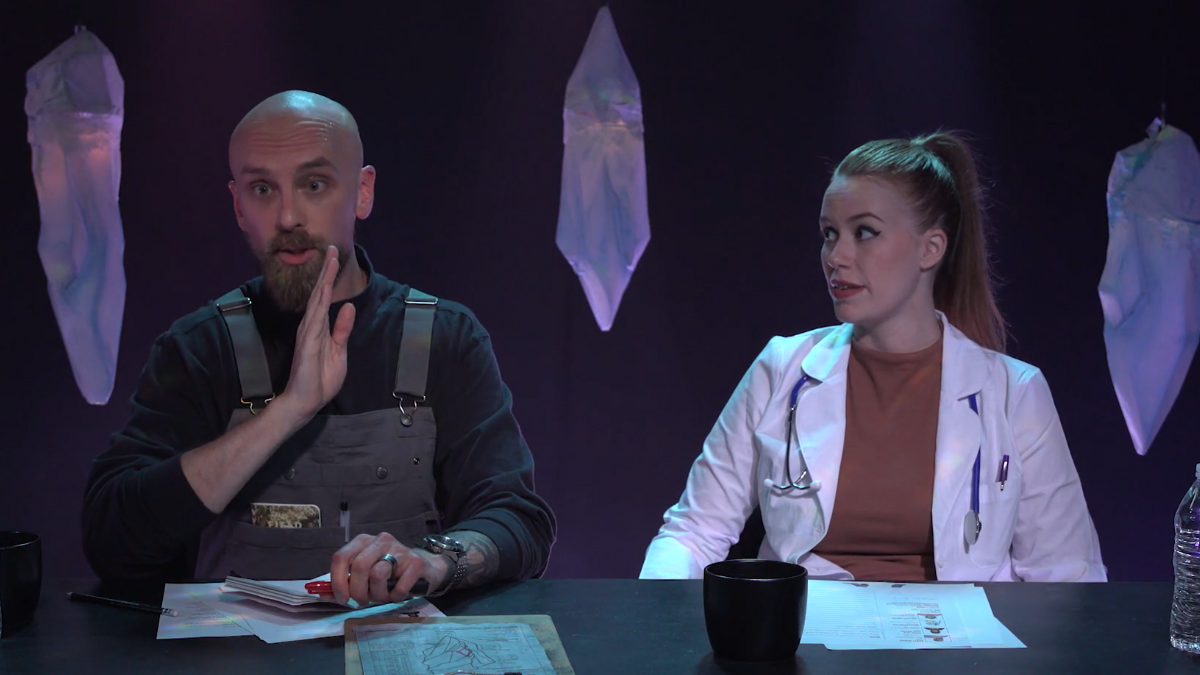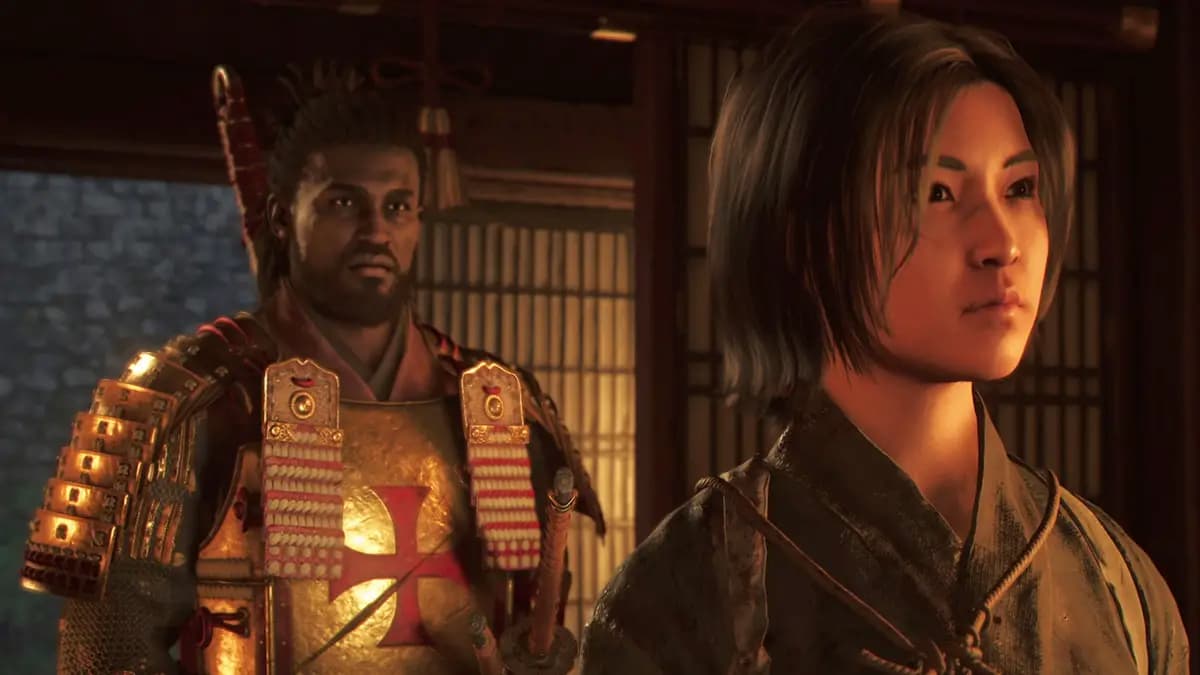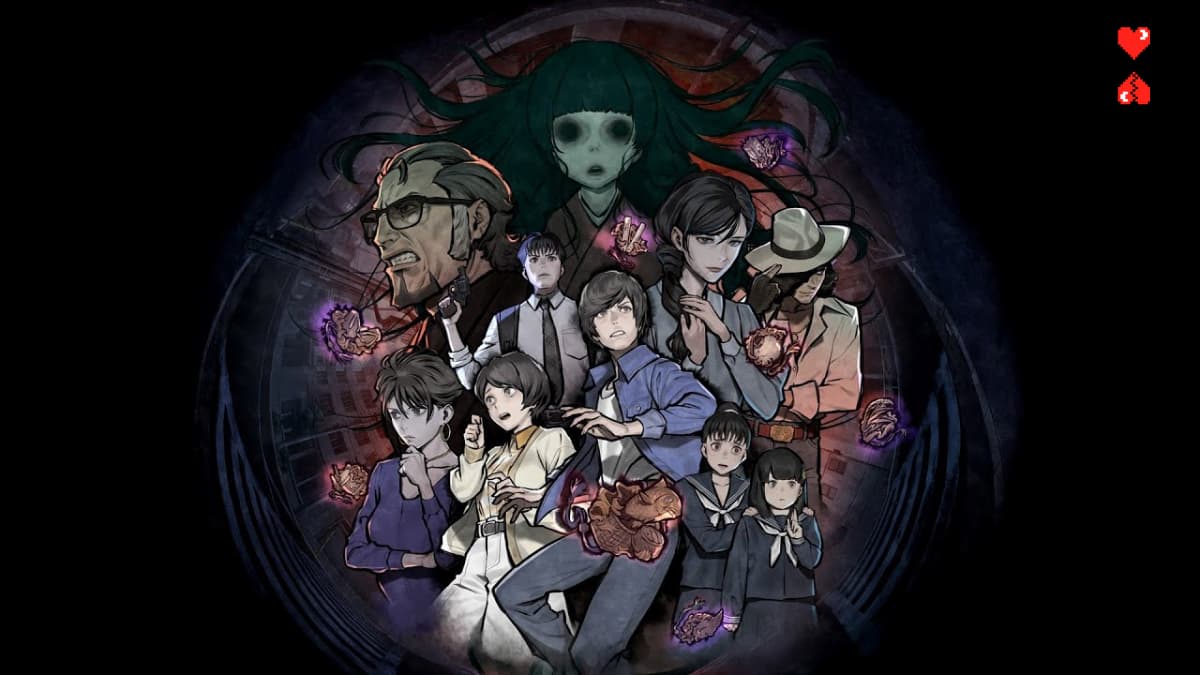Critical Role and Third Person literally and figuratively shoot for the moon in their latest expedition, Moonward: A Midst Roleplaying Story. Despite its subtitle, Moonward navigates its atmospheric space saga sans roleplaying system, representing both a transfixing evolution of the actual play (or post-actual play) genre and Critical Role’s culture of trust and collaboration.
What Critical Role Fans Can Expect from Moonward

On Moon Mining Foreman Dusty Rivers’ first day of vacation, his mica-rich workplace dramatically plummets from the sky. While not necessarily a comforting notion for viewers imbued with a creeping sense of dread that taking time off work could yield cataclysmic consequences, this disaster serves as the engaging impetus of Moonward’s story. A month after the Moonfall which likewise serves as a crucial set piece in the narrative of Midst’s audio drama, Matt Roen’s Dusty embarks on a bespoke rescue mission with the help of a scrappy crew. Third Person’s Sara Wile joins as the charming and underappreciated bocular mechanic Fiona Rue, with Critical Role mainstays Marisha Ray and Liam O’Brien folding in some traditional TTRPG sensibilities as Dr. Vesta Sterling and pilot Walden Orlock, respectively.
Moonward’s first episode introduces audiences to four deliciously imperfect heroes, providing an enticing appetizer for those most attracted to the roleplaying aspect of tabletop roleplaying. Though Moonward‘s nebulous coordinates within the actual play landscape will be addressed momentarily, the show proves undoubtedly engaging for those who flock to the genre in search of character focused storytelling. In terms of its driving story, Moonward imbues dashes of Firefly and Saga into its heist-y narrative playground.
Moonward delivers bite-sized episodes, at least compared to Critical Role‘s existing TTRPG output. Clocking in just slightly over two hours a piece, the Midst roleplaying adventure doesn’t contain the midsession intermissions typical of the channel’s main campaign stories. While the set, props, and costuming are reminiscent of Candela Obscura’s narrative immersion, Moonward ups the theatrical ante. Rather than a feed that displays all players at once, Moonward flits between shots of individual players, sides of the table, and the occasional split-screen of Guide Narrator Xen and their respective scene partners. In perhaps Moonward’s most unique technical deviation from typical TTRPG series, Xen contributes live musical accompaniment to heighten story beats and rachet up tension.
For existing fans of Midst, Xen’s musical stylings allow for a peek behind the curtain on how the enigmatic narrator crafted the podcast’s soundscape. Though familiarity with the Midst podcast is not a prerequisite for jumping into the abyss with Moonward’s crew, there are certainly some Leonardo DiCaprio pointing at the screen-worthy moments for existing fans. Beyond the reveal that Fiona was a memorable extra in the podcast or the appearances from characters like Goe of Goe’s Garag fame, what makes Moonward most fascinating for existing Midst fans are the insights it provides into the show’s origins. Third Person previously described Midst as a story born of the freewheeling style of tabletop storytelling on display in Moonward. From welcoming penguins into the canon of the Cosmos to advancing Fold tech, Moonward‘s table provides a glimpse into this long-form improvisational method of collaborative worldbuilding. With that in mind, let’s talk about Moonward’s place in the actual play, Cosmos.
Moonward Challenges Perceptions of Actual Play

So, is Moonward an actual play? While some audiences regard the new series as an avant-garde entry into the genre, others categorize it as post-actual play or simply as an unrelated exercise in long-form improvisational storytelling. Where Moonward fits within the realm of actual play—or if it does at all—is a conversation sparked by more than just the absence of math rocks at the table. The TTRPG Cosmos is incredibly vast, and not every system employs dice; however, the factors of random chance and the execution of narrative through mechanical parameters are often considered fundamental cornerstones when defining actual play.
Though the systemless Moondward lacks the mechanical perquisites of actual play, it still deals heavily in the genre’s broader motifs, such as creative group problem solving and character-based decision-making. With Dungeons & Dragons stalwarts Ray and O’Brien at the table, Moonward even manages moments of narratively self-imposed critical misses.
Third Person’s Wile provided the most straightforward definition of Moonward‘s approach to storytelling when she mused that “Everyone starts out playing this way. It’s the common building blocks to any gaming system. It’s just make believe”. While it could certainly be argued that Moonward‘s not an actual play series (at least not in the traditional sense), there is no question that the “kids around the campfire” philosophy highlighted by Wile epitomizes the ethos that Critical Role was founded on. From Vox Machina’s pre-stream Pathfinder adventures to the show’s three core Dungeons & Dragons parties to their development of new systems like Daggerheart and Candela Obscura, Critical Role‘s appeal has never been system-dependent. Moonward may strip away the pretense of system, but Critical Role‘s most crucial mechanic of friends sitting around and telling stories together remains vibrantly intact.
Moonward is available to watch here.














Published: Aug 19, 2024 7:09 PM UTC